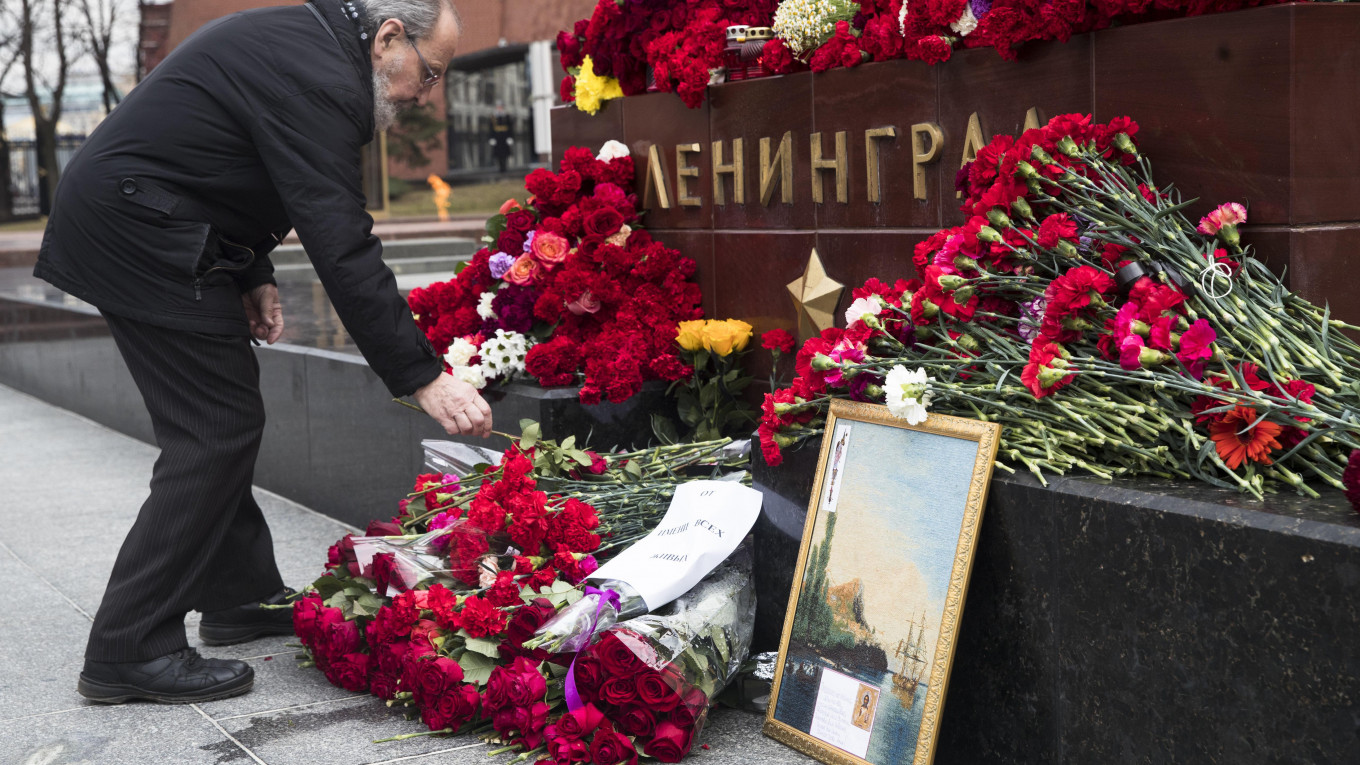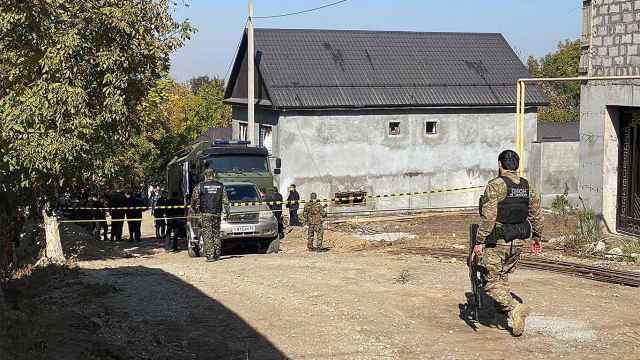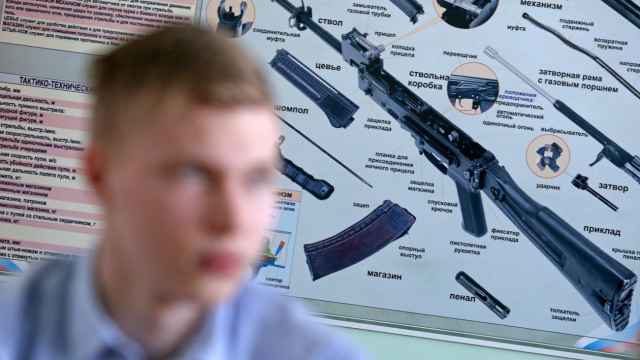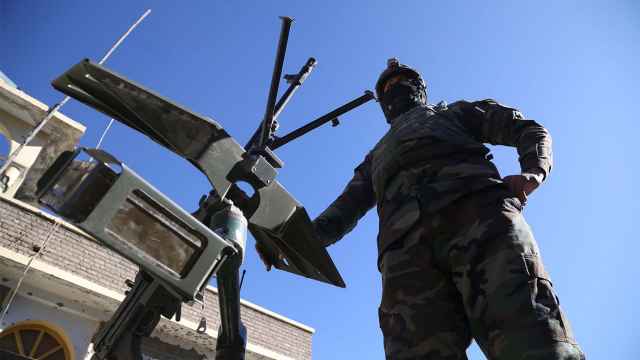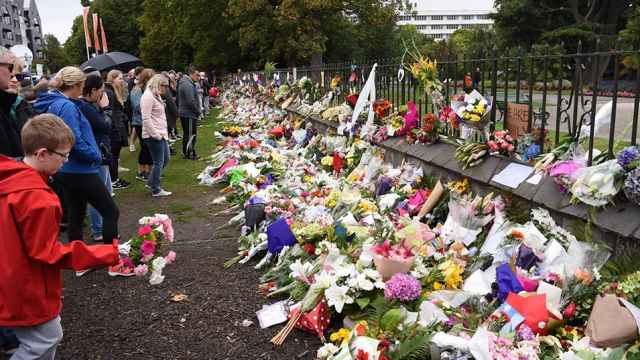With help from his readers, Ekho Moskvy journalist Alexander Plushev has unmasked what he calls a “grief factory,” claiming that activists from the pro-Kremlin movement “Anti-Maidan” secretly staged a demonstration in Moscow earlier this week, in memorial of the victims killed in Monday’s subway bombing.
On April 3, after the terrorist attack in St. Petersburg, a group of young people appeared in downtown Moscow, laying flowers at the Leningrad “hero city” monument along the Kremlin Wall. Russia’s new media promptly covered the story, hailing it as a spontaneous outpouring of civil spirit.
Many of the flowers, Plushev noticed, were identical. Calling the demonstration “blood publicity,” he asked his readers to identify the demonstrators, who described themselves to TV reporters as students at Bauman Moscow State Technical University (MGTU).
Within a couple of hours, Plushev got an email from Alexander Kukin, an MGTU alumnus, saying the university never organized any visit to the Kremlin on April 3.
As it turns out, the young people who laid flowers at the Leningrad memorial weren’t students — they were pro-Kremlin activists.
Kukin also dissected a video about the flower demonstration published by the news project “60sec,” which frequently features political stunts by the Anti-Maidan movement. Studying the footage, Kukin identified Anton Demidov and several other Anti-Maidan activists who have participated in several past “memorial” demonstrations, including mourning events in honor of Andrei Karlov (the Russian ambassador assassinated in Turkey last December), Vitaly Churkin (Russia’s UN ambassador who died this February in New York), and Elizaveta Glinka (the humanitarian figure who perished in a plane crash last Christmas, en route to Syria).
When Plushev first floated the idea of these “grief factories,” pundits and news anchors on Russian network television pounced, promptly flogging him for what they argued was insensitivity and an inability to understand his own compatriots.
“One must assume the Kremlin is enraged by this cheap vaudeville, when just about everyone at these memorials is a thug,” Plushev wrote sarcastically in a blog post on Thursday.
The Anti-Maidan movement launched in November 2013, in direct response to protests in Kiev that would eventually topple the Yanukovych regime. While the fervor of Russia’s tensions with Ukraine as subsided somewhat from its peak in 2014, the Anti-Maidan movement has maintained some prominence.
This Wednesday, Duma deputy Dmitry Sablin — one of the Anti-Maidan movement’s founders — was put in charge of crafting the “state-patriotic platform” for United Russia, the country’s ruling political party.
A Message from The Moscow Times:
Dear readers,
We are facing unprecedented challenges. Russia's Prosecutor General's Office has designated The Moscow Times as an "undesirable" organization, criminalizing our work and putting our staff at risk of prosecution. This follows our earlier unjust labeling as a "foreign agent."
These actions are direct attempts to silence independent journalism in Russia. The authorities claim our work "discredits the decisions of the Russian leadership." We see things differently: we strive to provide accurate, unbiased reporting on Russia.
We, the journalists of The Moscow Times, refuse to be silenced. But to continue our work, we need your help.
Your support, no matter how small, makes a world of difference. If you can, please support us monthly starting from just $2. It's quick to set up, and every contribution makes a significant impact.
By supporting The Moscow Times, you're defending open, independent journalism in the face of repression. Thank you for standing with us.
Remind me later.


